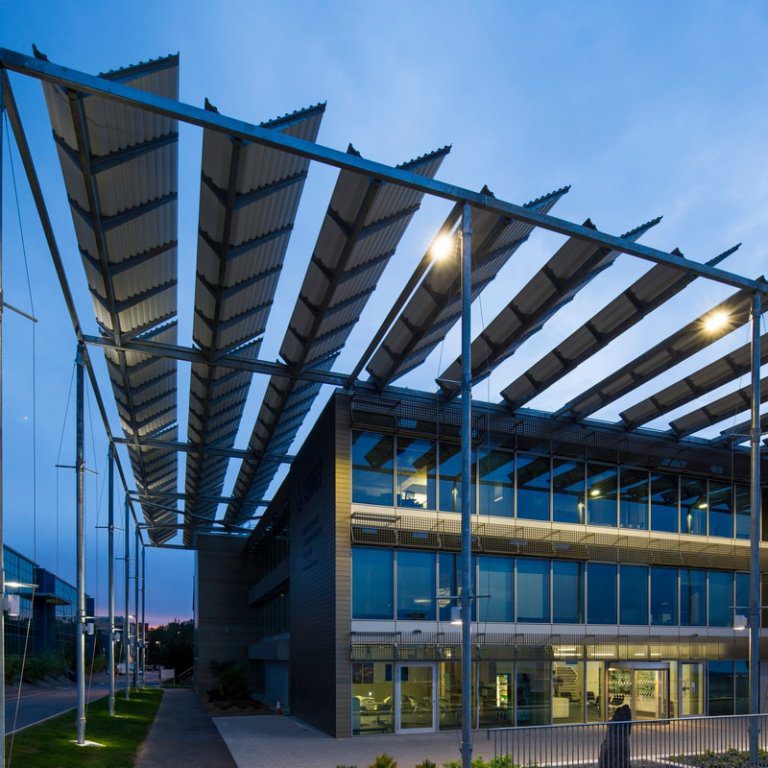Innovation
CableLabs Joins the UK 5G Innovation Centre

Why is 5G important? 5G, the next generation of mobile communication technology, will redefine communications services and their associated networks over the next five to fifteen years. Whereas the emphasis in the media at the moment focuses very much around the potential for Gbps radio services in the Millimeter frequency bands (mm-wave), one of the most intriguing aspects of the 5G goals is a target of one millisecond of latency for real time network control. This alone would have profound implications for the way that networks are designed and where the content resides. After all, there is no getting around the speed of light. New applications and services will be found for ultra low latency such as augmented reality with haptic feedback in real time, network control of robots and driverless cars.
The mm-wave small cells which will support multi-Gbps services will do so over distances of up to only a few hundred metres at the most. These small cells will require deep dense fibre networks. Therefore, I believe the combination of both mm-wave small cells and low latency will drive the agenda for fixed mobile convergence to be known as 5G. The cable industry is ideally placed here because of its asset position and its continuing deployment of higher and higher speed backhaul as well as its access to content.

Why academic research?
CableLabs has increased its focus on innovation in 2016 by putting several supporting programs in place. Under the leadership of Ike Elliott and Ron Reuss, we have doubled our funding of academic outreach focused on centres of excellence. As a key part of the academic program is 5G, we are supporters of NYU Wireless, under the leadership of Professor Ted Rappaport, which has pioneered the cellular use of mm-wave bands with the development of the associated channel model. This is helping to drive our 5G research, under Belal Hamzeh, in the analysis of the threats and opportunities for the mm-wave wireless local loop. However, because there is more to 5G than the importance of mm-wave, this drove us to join the United Kingdom’s 5G Innovation Centre co-located at The University of Surrey.
UK 5G innovation Centre
The 5G Innovation Centre is one of the world’s leading centres of excellence in 5G and the UK’s largest academic research centre dedicated to the development of next generation mobile and wireless communications. It brings together leading academic expertise and key industry partners in a shared vision. The 5G IC houses 170 researchers and at its heart is a state of the art testbed for trialling emerging 5G ideas.
It is very difficult to cover here all their research activities so just let me give you a taste of their 5G Vision. There is a considerable amount of research into the air interface below 6 GHz to grow both the speed and capacity by 10x. Already some of their research here is likely to find its way into 3GPP - the mobile standards organization. However, at the heart of 5G is content. Current IP protocols are rapidly becoming obsolete since they were designed for a world where communications were point to point oriented. Today, the internet focuses on the distribution and storage of content. To achieve 1mS latency and to improve the associated Quality of Experience, 5G networks will proactively move content closer to the user based on predictive algorithms. Already the 5G IC has shown success rates of 95% in this approach. Associated with this is a movement away from IP to perhaps Information-centric networking (ICN). This is an approach to evolve the Internet infrastructure away from a host-centric paradigm based on perpetual connectivity and end-to-end communications to a network architecture in which the focal point is “named information” (or content or data). These ideas will be at the heart of all networks in the next five to fifteen years. All of these are very active areas of research at 5G IC and CableLabs.
As part of our 5G IC membership, we will sponsor a PhD student while gaining access to the whole output of the centre. We have already identified several areas of interest to cable system operators for the PhD Student such as the use of shared spectrum in both licensed and unlicensed bands or software defined networks for 5G cores. Key to our success in our association with the 5G IC, CableLabs will be working closely in a partnership gaining access to world class academic researchers as well as contribution to the industry consensus on 5G.

